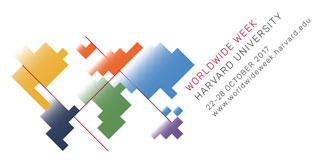Date:
Location:
"Remapping Knowledge Exchange: Scientific Agriculture in Sonora, Mexico and Punjab, India"
Speaker:
Gabriela Soto Laveaga, Professor, Department of the History of Science, Harvard University.
Co-sponsored by the Graduate School of Arts and Sciences and the School of Engineering and Applied Sciences, Harvard University.
Contact:
Shana Ashar
shana_ashar@hks.harvard.edu
This event is part of Harvard Worldwide Week | #HarvardWorldwide
Chair:
Sheila Jasanoff, Faculty Associate. Pforzheimer Professor of Science and Technology Studies, Harvard Kennedy School.
Lunch is provided if you RSVP via our online form by Thursday of the week before the event.
Abstract:
In 1966 Octavio Paz, Mexico’s ambassador to India and future Nobel laureate, wrote a scathing memo to both Mexican and Indian officials. In a recent presentation concerning scientific exchange and agriculture, specifically hybrid wheat seeds, Paz noted a glaring omission: Mexico’s role was not mentioned. This omission he feared was the beginning of a revisionist telling of scientific exchange. Decades later Paz’s memo encourages us to rethink how we construct narratives about circulation of knowledge during the initial years of the Green Revolution. What exchanges are worthy of analysis and, more important, why? In this presentation I examine the origins of the Green Revolution not primarily as a story of foreign development aid but rather as a history of on-going national projects linking science to local needs in two distinct places, northern Mexico and India.
Biography:
Gabriela Soto Laveaga is Professor of History of Science at Harvard University. Her current research interests interrogate knowledge production and circulation between Mexico and India; medical professionals and social movements; and science and development projects in the twentieth century. Her first book Jungle Laboratories: Mexican Peasants, National Projects and the Making of the Pill won the Robert K. Merton Best Book prize in Science, Knowledge, and Technology Studies from the American Sociological Association. Her second monograph Sanitizing Rebellion: Physician Strikes, Public Health and Repression in Twentieth Century Mexico examines the role of healthcare providers as both critical actors in the formation of modern states and as social agitators. Her latest book project seeks to re-narrate histories of twentieth century agriculture development aid from the point of view of India and Mexico. She has held numerous grants, including those from the Ford, Mellon, Fulbright, DAAD, and Gerda Henkel Foundations.


